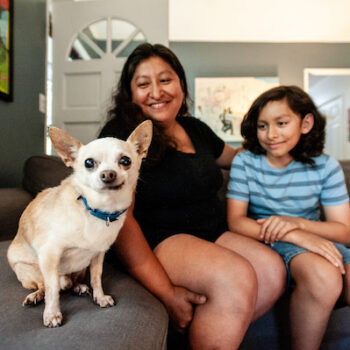Catch up on a recent Community Conversations call with Dr. Alina Luna, Dean of the Circle of Learning and Leadership, and Sheila Donya Kouhkan, Chief Engagement Officer, from Companions and Animals for Reform and Equity (CARE) for a panel discussion with animal well-being leaders across the country. They discussed their experiences with CARE’s Racial Equity, Diversity, and Inclusion course (REDI) and the positive impact their learnings have had on themselves, their organizations and their goals. It’s an honest conversation that will open hearts and minds about how the future of animal welfare is Human and Animal Well-Being (welfare).
In the ever-evolving landscape of animal welfare, CARE dedicates its time to creating a brighter future for humans and animals. Panelists Sophie Gamand, Pit Bull Flower Power artist and animal activist; Mindi Callison, Founder and Executive Director of Bailing Out Benji; Brad Shear, CEO of Potter League for Animals, and Erika Pratte, Director of Partners for Pets Humane Society also join.
REDI proved to be a catalyst for growth and change, with panelists sharing their newfound organizational strategies and deeper understandings of their communities. They shared how it has given them a new language to communicate with their communities and has provided them with insight into improving service accessibility and effectiveness.
Shear articulated the course’s impact on his organization, stating, “I think it changed their perspective to say, you know, everyone I’m encountering is just like me. They just love their pets.” Callison echoes this sentiment, sharing how she has learned the importance of caring for pets and those who love them. Her takeaway: “We can’t help pets without first helping their people.”
In an industry where compassion knows no bounds, this Community Conversations call symbolizes hope for the continuous growth and evolution of the animal welfare space. To learn more about the impact that CARE’s REDI course has had on these organizations, tune in to REDI for Change: Learning How Inclusivity Saves Lives.

